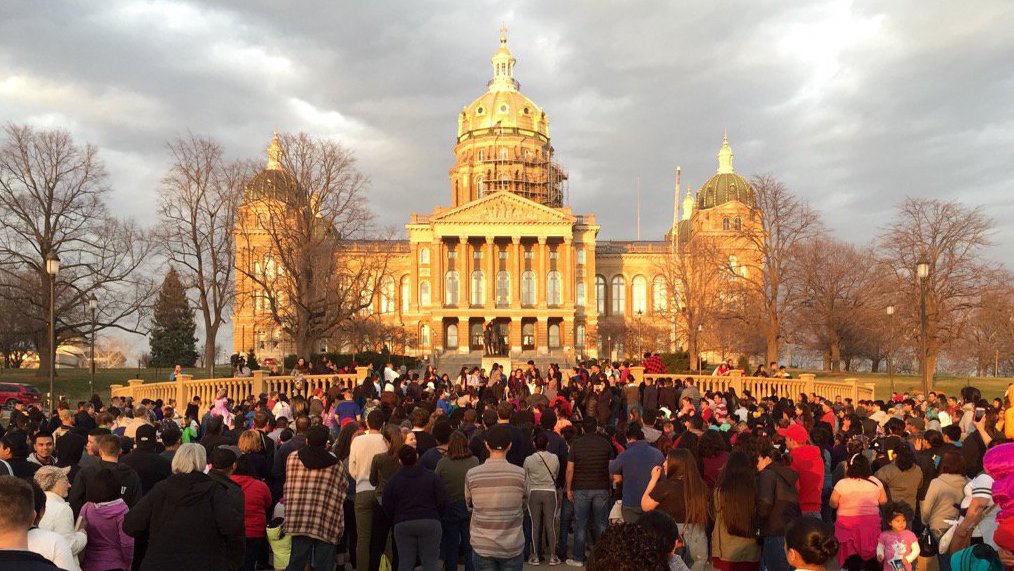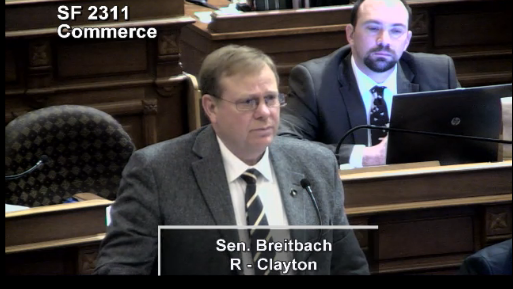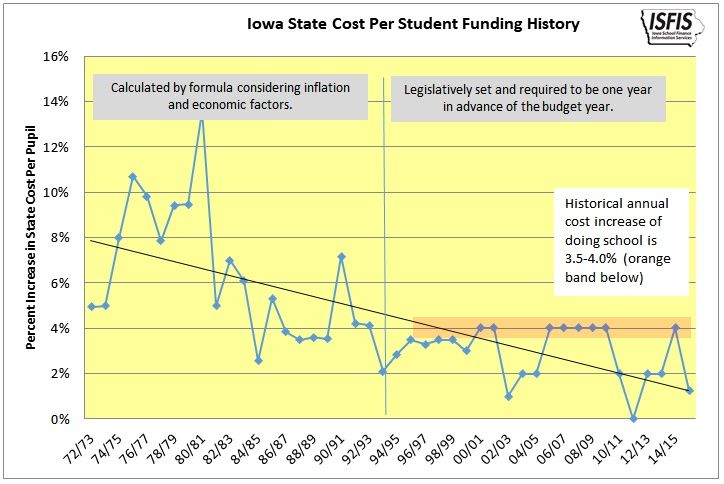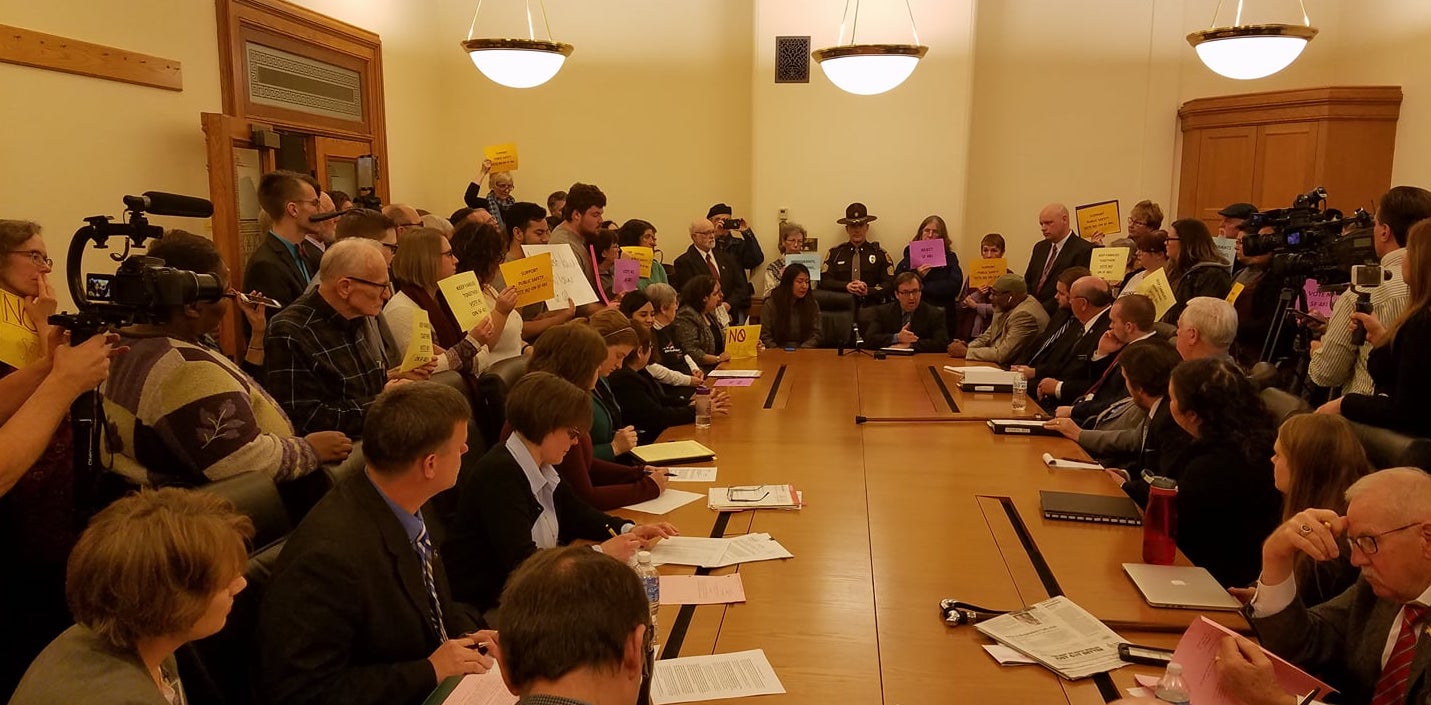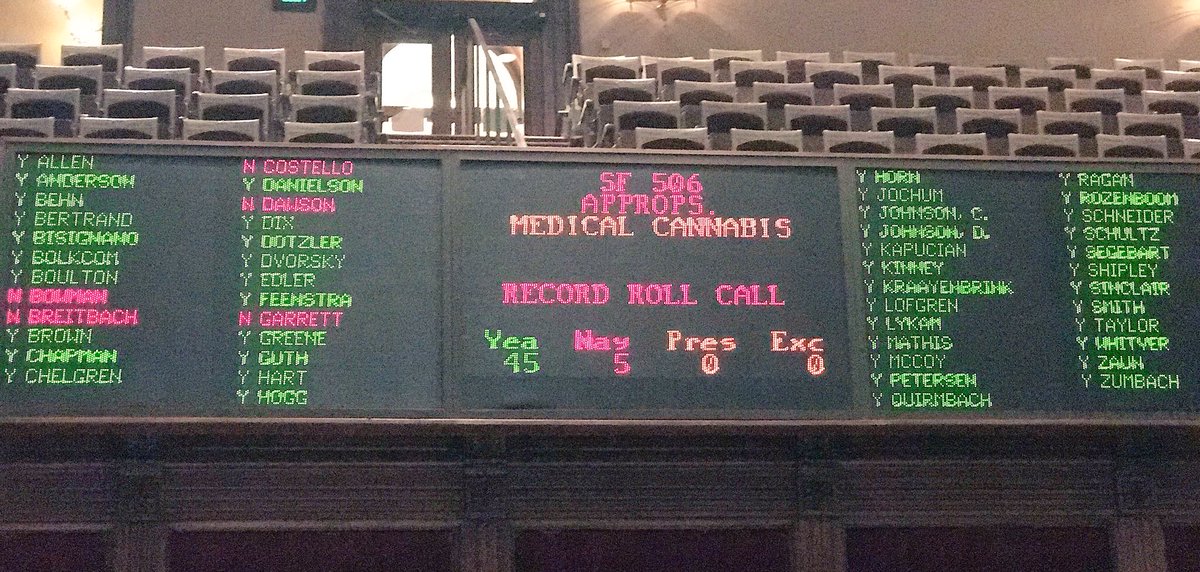A standoff over state funding for K-12 education appears unlikely to be resolved anytime soon. The Republican-controlled Iowa House has approved legislation setting “allowable growth” in state funding to school districts at 1.25 percent for fiscal year 2016; the House Journal for January 27 includes details on the debate, during which members rejected on a party-line vote a Democratic amendment to increase school spending, and later approved House File 80, also along party lines. House Republicans reportedly support a 2.45 percent increase in school funding for fiscal year 2017 but have not brought legislation before the full chamber yet.
Meanwhile, Democrats who control the Iowa Senate are committed to setting allowable growth at 4 percent for each of the next two fiscal years. Many education groups have lobbied lawmakers for at least 4 percent allowable growth, and in a Senate Democratic survey of Iowa superintendents, 96 percent of respondents said the appropriate level of supplemental state aid for the coming fiscal year should be 4 percent or higher.
Yesterday four education funding bills passed the upper chamber; a statement enclosed after the jump covers the key points in each bill. The legislation setting allowable growth at 4 percent for fiscal year 2016 and 2017 passed on party-line votes (roll calls are in the Senate Journal). Republicans joined their colleagues to unanimously approve the other two bills, which would “have the state pick up the 12.5 percent property tax share under the state’s foundation aid formula for both fiscal years.” Rod Boshart summed up the bottom line:
Under the GOP approach, current state per-pupil funding of $6,366 would grow by $80 in fiscal 2016 and another $158 in fiscal 2017. By contrast, the Senate’s 4 percent position would boost per-pupil funding to $6,621 for the 2015-16 academic year and $6,886 the following school year.
Or to view it another way, the House approach would include nearly $100 million in additional K-12 school funding for fiscal year 2016, while the Senate approach would provide an additional $212 million this coming year and $217 million the following year.
The obvious compromise would be to increase school aid by somewhere between 2-3 percent for each of the next two years, but Republican lawmakers and Governor Terry Branstad insist there’s no room in the state budget for that much additional spending. Note that no one questioned whether Iowans could afford an extra $100 million in tax cuts, mostly for business, which just passed the Iowa House unanimously.
During yesterday’s debate, Democratic State Senator Tony Bisignano argued that the big commercial property tax cut approved in 2013 will shortchange Iowa students. (Indeed, when that commercial property tax bill passed, many people warned that it would lead to cuts in public services.) State Senator Joe Bolkcom also criticized “messed up” priorities that favor “special interests” in the state tax code. As long as I’ve been paying attention to the Iowa legislature, tax expenditures have always been an easier sell than more money for schools or other public services. That dynamic won’t change this year.
Any relevant comments are welcome in this thread.
Continue Reading...





